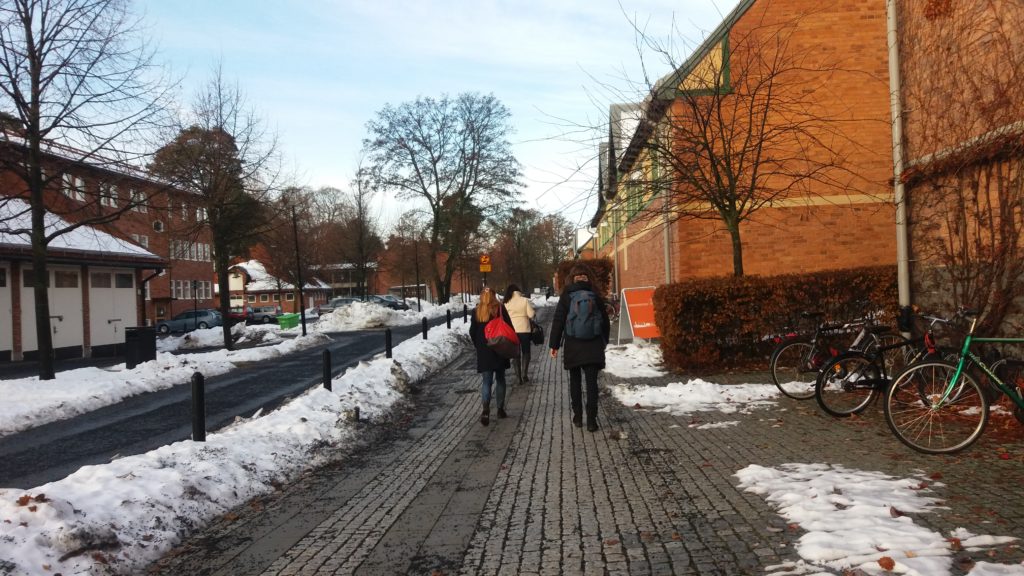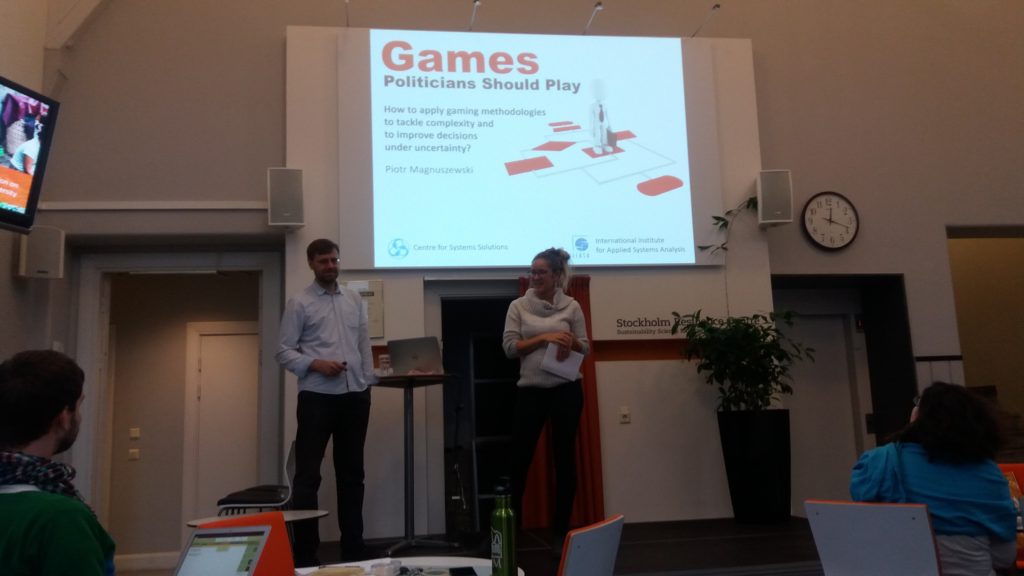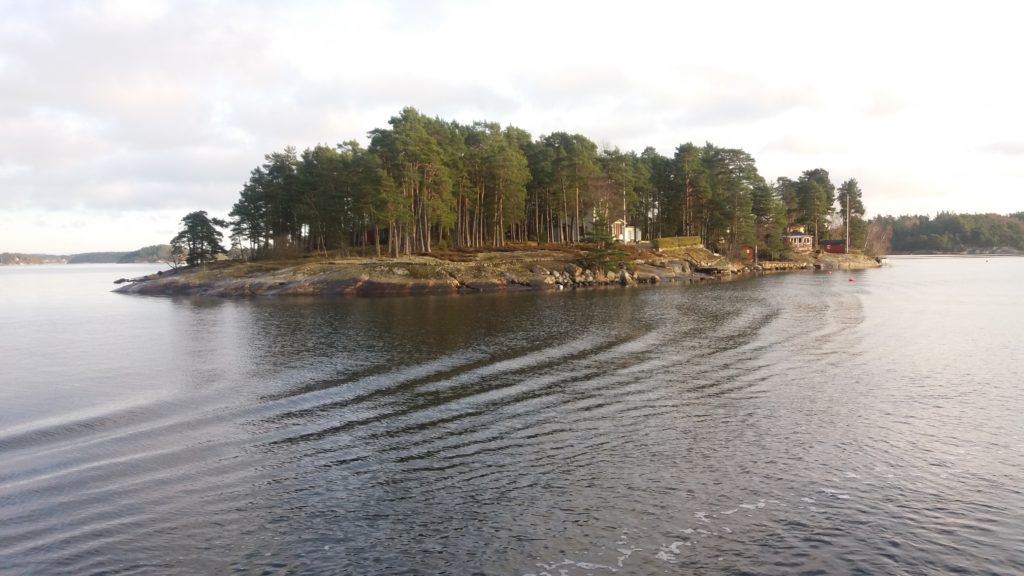Like most PhD students determined to make a significant contribution to science and policy through their research, my PhD journey is not an exception. My research had a reached a point where I had to work on that thesis chapter I had always procrastinated to work on. Neither had I the time nor the luxury to further postpone working on it; but had to link its insights to other chapters of my thesis. This realization coupled with the privilege I knew my research project ‘Resilience in East African Landscapes (REAL)’ accorded to PhD students to visit sister institutions for 2-3 months secondment provided the impetus to dedicatedly work on the constantly postponed ‘chapter 3’ of my thesis. Having known that my secondment was arranged for Stockholm University, we had a conversation with my supervisor (Robert Marchant) and the REAL principal investigator based at Stockholm University (Lowe Borjeson) on my secondment plans and objectives. We agreed that Stockholm Resilience Centre (SRC) would be an ideal place for my secondment as my research perspective matched some of those used at the centre.
The main goal for my visit to SRC would then be to work on ‘chapter 3’ of my thesis. A chapter interested in understanding the interaction between changing climates, vegetation and pastoral grazing and sedentarization patterns in southern Kenyan savannas using an agent based model. Lowe introduced me to Maja Schlüter, an associate professor at SRC and the head of the SES-LINK research group, who kindly agreed to host me during my secondment at SRC. Thereafter, my secondment began in Sep 2016.

SRC’s entrance at the building marker in the iconic ‘SRC orange colour’
Having read Maja’s work it was such an amazing and valuable experience to meet and have ‘one-on-one’ chats with her about my research. We discussed the social-ecological model I was developing right from its formulation, in its ODD (Overview, Design concepts and Details) Protocol, to its execution. Additionally, she introduced me to the SES-LINK research team. A group of vibrant and enthusiastic postdocs and PhD candidates who together with Maja met every Wednesday to discuss their fascinating projects and other interesting research activities they were involved in. These meetings proved to be extremely helpful as they not only helped me understand the breadth of complex adaptive systems, but also made me appreciate alternative research perspectives used in understanding them. These meetings also provided a great platform for me to discuss my research and exchange knowledge with other researchers; an opportunity which proved to be interesting and rewarding by all measures. For instance, it was always a delight to meet and chat with Romina Martin, a researcher within the SES-LINK project, about simulating pastoral behaviours in dryland ecosystems. Interestingly, Romina researched on and simulated pastoralists movements in drylands ecosystems in Morocco for her PhD.
SRC is also feted for its high impact research, conferences and talks. My time there proved this to be the case. By attending the weekly one hour speed talks, I learned loads from numerous visiting and resident high level researchers within a short time. Who knew one could learn more than ten research projects in just one hour? Besides the speed talks, the brown bag lunches and other theme and stream meetings were enlightening and insightful. One particularly interesting brown bag lunch was offered by Piotr Magnuszewski and he spoke on using games for sustainability with a focus on politics. What was fascinating about this talk was how different yet clear games can provide a means of understanding and communicating complex adaptive systems. Moreover, his talk was followed by him leading a group of enthused SRC researchers to play a game on watershed management using contrasting and varying priorities, views and interests from various stakeholders on the watershed. A game which was educative, exciting and importantly, took into account the complexity of human-nature systems.

Jamila Haider introducing Piotr Magnuszewski before his talk
At the centre, I also had an opportunity of interacting with other researchers from other research groups. The AdaptEcon project, in particular, is a Marie Curie ITN with a cohort of 12 PhD students based in different institutions in Europe. Jennifer Hinton and David Collste are part of AdaptEcon and are based at SRC. Together with them and other AdaptEcon and REAL PhD researchers, Annemiek Pas Schrijver and Anna Shoemaker, we had Marie Curie training network-to-network meeting. A meeting that was fulfilling and a constant reminder of the individual and combined research progress we make by being part of an interdisciplinary research project.
Despite having a busy schedule at SRC, it was impossible not to make time to visit places and appreciate the alluring Stockholm. How could I leave Stockholm without visiting the Stockholm archipelago, Gamla Stan, Skansen (Fig 3) and the Nobel Museum? I’m glad I made time to visit and enjoy Stockholm.
Reindeers, herded by the Sami Community, in Skansen, Stockholm
Looking back, three of my most inspiring and rewarding months in 2016 were spent at SRC. While I appreciate the effort made by many people to make my secondment run smoothly, I’m hugely grateful to Maja for hosting me at SRC and in the process making my visit worthwhile. Hopefully, my research will contribute significantly to science and policy.
Ahsante sana Maja, the SES-LINK team and the entire SRC fraternity.

A beautiful island at the Stockholm archipelago, Sweden
More about SES-LINK project and Stockholm Resilience Centre can be found at:
http://www.stockholmresilience.org/
